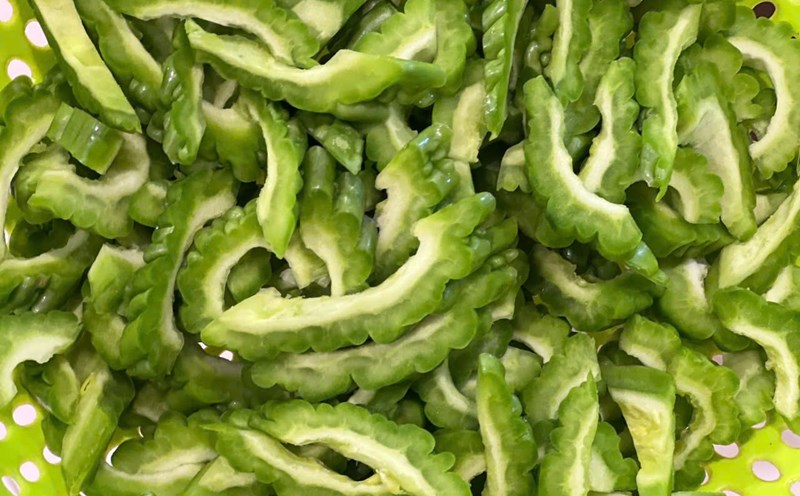Cantaloupe has orange or light yellow meat - a sign of high beta-carotene content, a precursor to vitamin A.
According to the United States Department of Agriculture (USDA), every 100g of melon contains about 2020 mcg of beta-carotene, which accounts for more than 40% of the recommended daily vitamin A requirement.
Vitamin A is an essential nutrient to create rhodopsin - a protein in the retina that is essential for viewing in low light conditions. A prolonged lack of vitamin A can cause dry eyes, blurred vision, and even blindness due to cornea damage.
A study from the American Journal of Clinical Nutrition shows that a diet rich in plant-based beta-carotene such as melon helps reduce the risk of vision loss due to macular degeneration (AMD) in people over 50 years old by 25%.
Cantaloupe also contains two other important carotenoids, lutein and zeaxanthin, which can focus on the yellow spot (macula) of the eye, acting as a natural light filter, helping to protect the retina from the harmful effects of UV rays and blue light from electronic devices.
According to a report by the American brand Association (AAO), supplementing 6-10mg of lutein + zeaxanthin per day from foods like melon is related to:
Reduces the risk of yellow spot degradation due to age.
Improve contrast sensitivity and vision in bright environments.
Every 150g of melon provides about 0.3-0.5mg of lutein, which is not a large amount but is valuable when combined with other sources in the daily diet.
Not only rich in carotenoids, melon also contains vitamin C, potassium and flavonoids, which play an important role in:
Anti-inflammatory and free radical neutrality, the cause of eye cell damage over time.
Increase resistance, help the eyes fight infections and environmental factors.
Vitamin C and antioxidants in orange fruits such as melon, orange, papaya can slow down the deterioration of the retina due to natural aging.
How to eat melon for good eyes?
Ideal crust: 150-200g/day (equivalent to about 1-1.5 slices).
Best Time: In the morning or mid-afternoon to optimize the absorption of water-soluble vitamins such as vitamin C.
Do not eat too much: Because melon has an average glycemic index, people with diabetes should eat it in moderation and combine it with fiber-rich foods.











